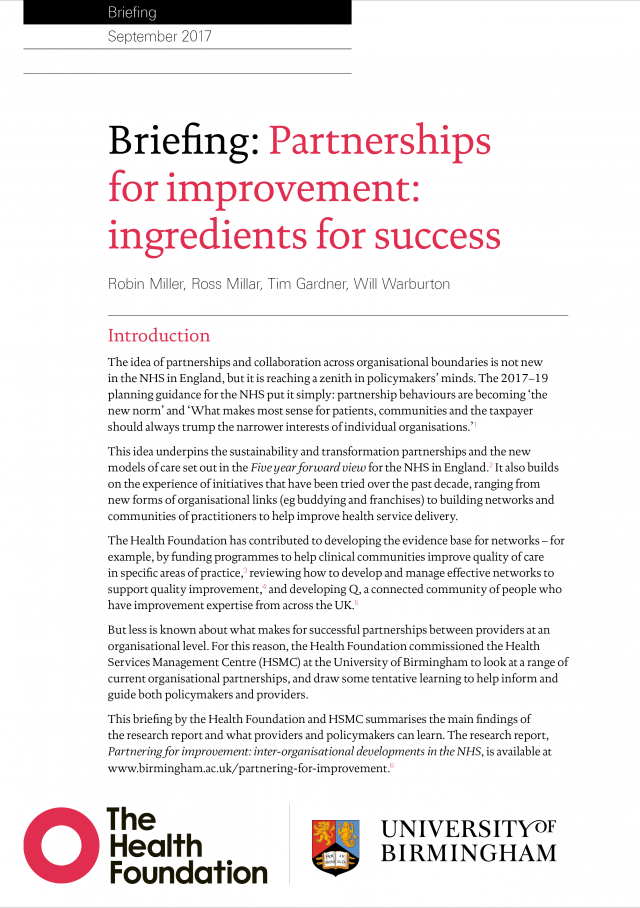Partnerships for improvement: ingredients for success
September 2017

Key points
- The Dalton review and the Five year forward view both emphasise that there is no ‘one size fits all’ model for provider organisations or for service delivery. The onus is therefore placed on providers to select and adapt the approach that best suits their own aims and objectives.
- The report provides a snapshot of some of the key ingredients needed for successful partnerships. It highlights that partnering across clinical, institutional and geographical boundaries has the potential to maintain and improve quality at a time of substantial financial pressures and demographic change.
- Given the commitment of time and resources involved – in an environment where financial and human resources are scarce – informed decision making on entering into a partnership of any kind is vital.
- Different types of partnerships can make a positive contribution to improved quality, given the correct opportunities, investment and environment.
- Partnerships vary in terms of nature, scale and form. They may:
- range in terms of ambitions, objectives and mechanisms to drive improvement
- range enormously in scope, from small-scale collaborations between individual clinicians to the structural integration of entire organisations
- be initiated voluntarily to pursue opportunities for improvement, or be mandated by regulators as part of a response to organisational or quality failures.
- Partnering does have potential benefits, but these are not easy or quick to achieve. To have a meaningful impact on the quality of care, the right form of partnering needs to be used in the right context and it needs to be accompanied by the right set of enabling factors – as described by the report.
The idea of partnerships and collaboration across organisational boundaries is at the heart of NHS reforms in England. Although we have helped to develop the evidence base for how networks of people can improve quality of care, less is known about what makes for successful partnerships between providers at an organisational level.
For this reason, we commissioned the Health Services Management Centre at the University of Birmingham to look at a range of current organisational partnerships. This report focuses on five different partnering arrangements, as well as interviews with national leaders, and draws learning to help inform and guide policymakers and providers.
Further reading
Work with us
We look for talented and passionate individuals as everyone at the Health Foundation has an important role to play.
View current vacanciesThe Q community
Q is an initiative connecting people with improvement expertise across the UK.
Find out more

